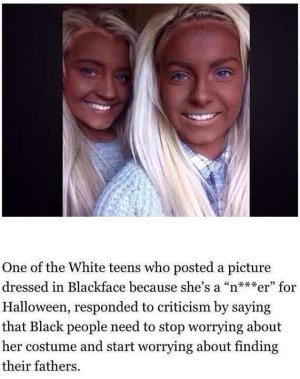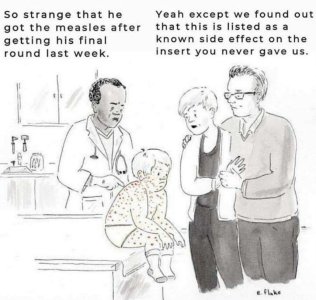May be why he goes away for periods of time. To let the swelling from the infiltration of fluids in his hands subside.
You are using an out of date browser. It may not display this or other websites correctly.
You should upgrade or use an alternative browser.
You should upgrade or use an alternative browser.
Master Dance Your Cares Away/Fraggle/Law Abiding Citizens
- Thread starter Bryan74b
- Start date
Community megathread
Seems like hockey players would learn karate. When getting into a fight and the other player grabs the jersey a swift karate chop to the arm would allow for close contact and maybe a pummeling.
Had to go find anfew Tony Twist fights after watching this.Seems like hockey players would learn karate. When getting into a fight and the other player grabs the jersey a swift karate chop to the arm would allow for close contact and maybe a pummeling.
Had to go find anfew Tony Twist fights after watching this.
I was fortunate to watch Probert and Kocur were in the minors. Some brutal battles. Slapshot types
Last edited:
Fwiw

 wltreport.com
wltreport.com

The Cell Phone Outage Story Is Imploding, Details Not Adding Up! Here’s The Latest…
Did your mother ever tell you to just tell the truth, that way you don’t have to remember when you were lying? Anyone else ever heard that? It’s a much simpler way to live. Much better than trying to remember which story you told to which person. Unfortunately, the Legacy Media never got that...
First excuse was sun spots. Then hackers. Now software issues.Fwiw

The Cell Phone Outage Story Is Imploding, Details Not Adding Up! Here’s The Latest…
Did your mother ever tell you to just tell the truth, that way you don’t have to remember when you were lying? Anyone else ever heard that? It’s a much simpler way to live. Much better than trying to remember which story you told to which person. Unfortunately, the Legacy Media never got that...wltreport.com
I get it. Next you’ll tell me they had to be shown ‘good’ government, lol. I don’t believe for a minute the ‘good guys’ are in control with the amount of human tragedy that surrounds us.The point went clear over your head. One president DID follow all the rules......and he did so for a very specific reason.
Shaking left-handed was set-up before the visit IMO.May be why he goes away for periods of time. To let the swelling from the infiltration of fluids in his hands subside.
By how much?Poor Nimrata. Lost again
By how much?
She’s down 60-40.
I also noticed there were 17 flags behind her on the stage at her speech just now. We are watching a movie.
She is right you know
She is right you know
I bet she's seen that move a lot on the receiving side.
Nice. I saw him with the Blues in the 90s. Not sure who his opponent was, but he was in locker room after a fight with twist, said he sneezed and his whole face collapsed. orbital bone broke.I was fortunate to watch Probert and Kocur were in the minors. Some brutal battles. Snapshot types
My X man
From the Home-Board
At some point, ESPN needs to produce a "30 for 30" story about the Aggies '22 recruiting class.
Why did they go to A&M, what happened and where are they now?
They could film it from Jimbo's new yacht.
We have a portal thread, bruh.
Hey @MortgageHorn , it was nice of you to send your women’s team to Lawrence today. 2-18 in Allen over 20 years is reason enough to run off to the soft SEC.
The Disinformation Playbook
How Business Interests Deceive, Misinform, and Buy Influence at the Expense of Public Health and SafetyPublished Oct 10, 2017 Updated May 18, 2018
Science helps keep us safe and healthy. The public safeguards that keep our drinking water clean and our children's toys safe rely on independent science and a transparent policymaking process. And we all rely on scientific information to make informed choices about everything from what we eat to what consumer products we buy for our families.

Stopping the Disinformation Playbook
Too often, companies use the Disinformation Playbook to make public policy work for them, instead of for all of us. But the Playbook is not unstoppable—and it's time to push back.But the results of independent science don’t always shine a favorable light on corporate products and practices. In response, some corporations manipulate science and scientists to distort the truth about the dangers of their products, using a set of tactics made famous decades ago by the tobacco industry. We call these tactics the Disinformation Playbook.
To be clear: most companies don’t engage in disinformation. The deceptive practices that make up the Playbook are used by a small minority of companies—and yet, as we show, they are found across a broad range of industries, from fossil fuels to professional sports.
Here are five of the most widely used “plays” and some of the many cases where they have been used to block regulations or minimize corporate liability, often with frightening effectiveness—and disastrous repercussions on public health and safety.
Companies underwrite a good deal of scientific research, and society often benefits from it. But bonafide scientific research demands a high degree of scientific integrity to ensure that results derive from the evidence, and not from a desire to meet a predetermined, non-scientific objective. People who have a financial stake in research outcomes should not publish in scientific journals without full and clear disclosure of conflicts of interest—especially when the results involve the safety or effectiveness of a company’s products.
To evade these standards, some companies choose to manufacture counterfeit science—planting ghostwritten articles in legitimate scientific journals, selectively publishing positive results while underreporting negative results, or commissioning scientific studies with flawed methodologies biased toward predetermined results. These methods undermine the scientific process—and as our case studies show, they can have serious public health and safety consequences.

The Disinformation Playbook
Five tactics business interests use to sideline science, deceive the public and buy influence at the expense of public health and safety.
Similar threads
- Replies
- 13
- Views
- 614
- Replies
- 6
- Views
- 356
- Replies
- 0
- Views
- 2K
- Replies
- 56
- Views
- 5K





















